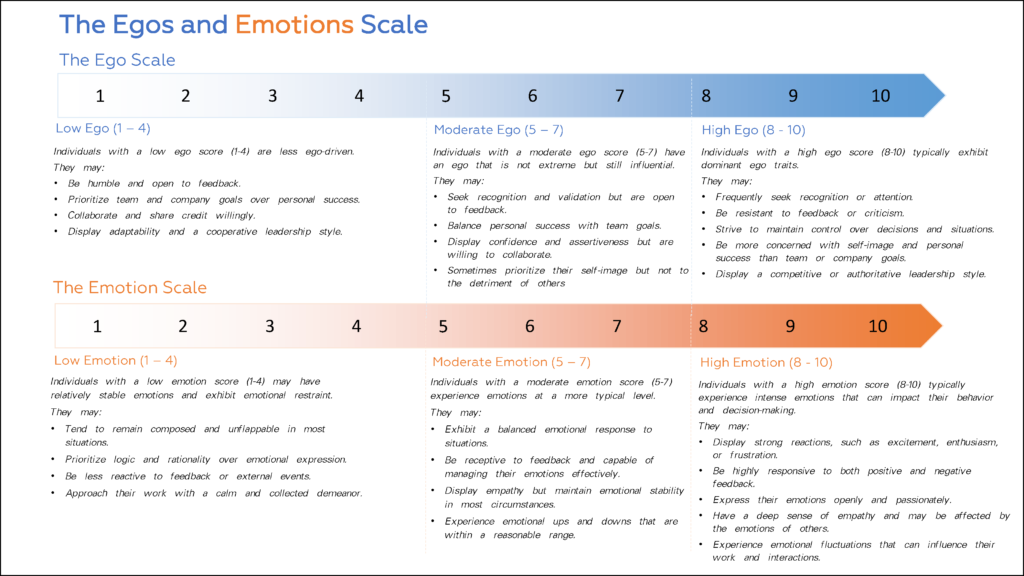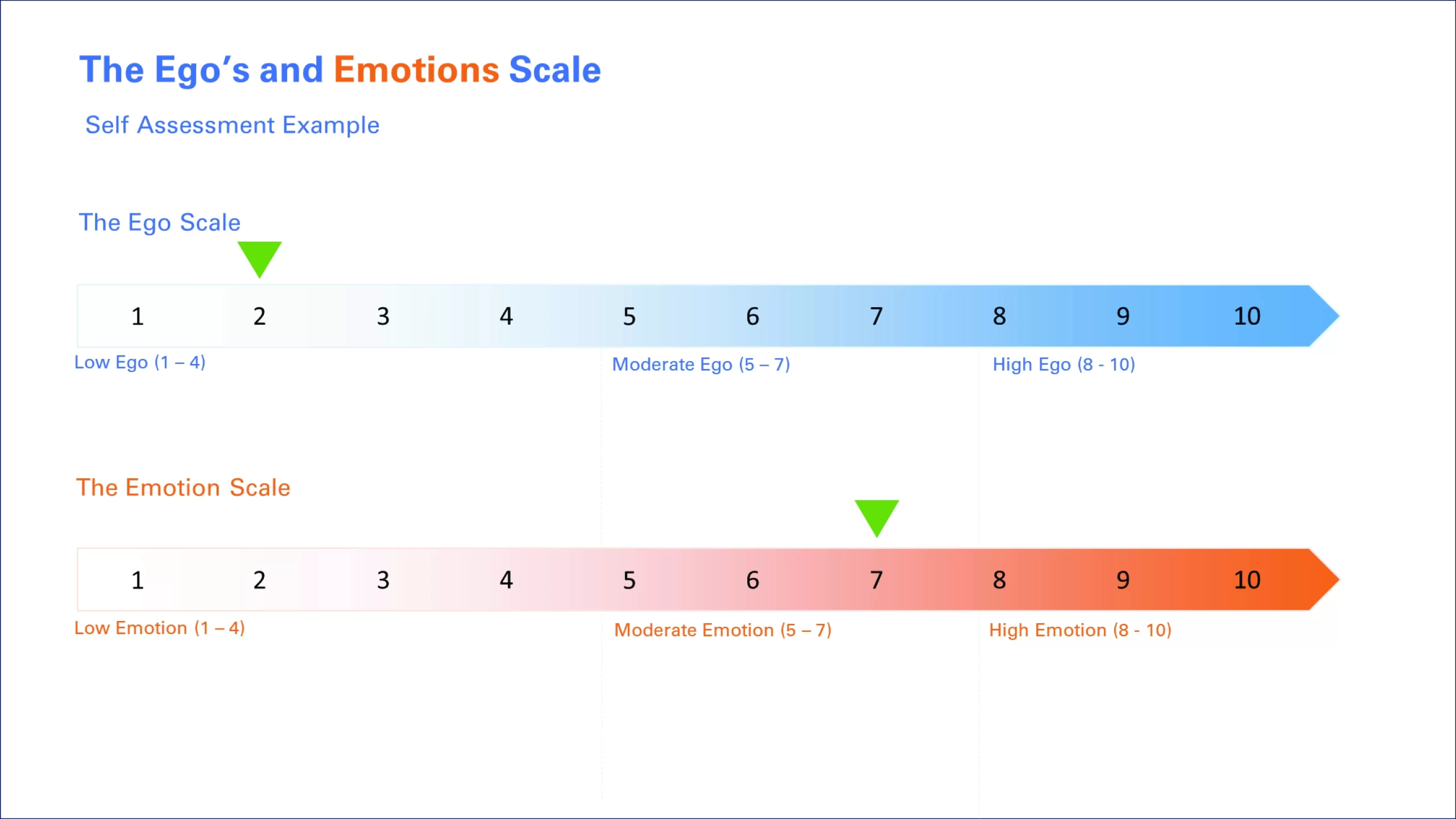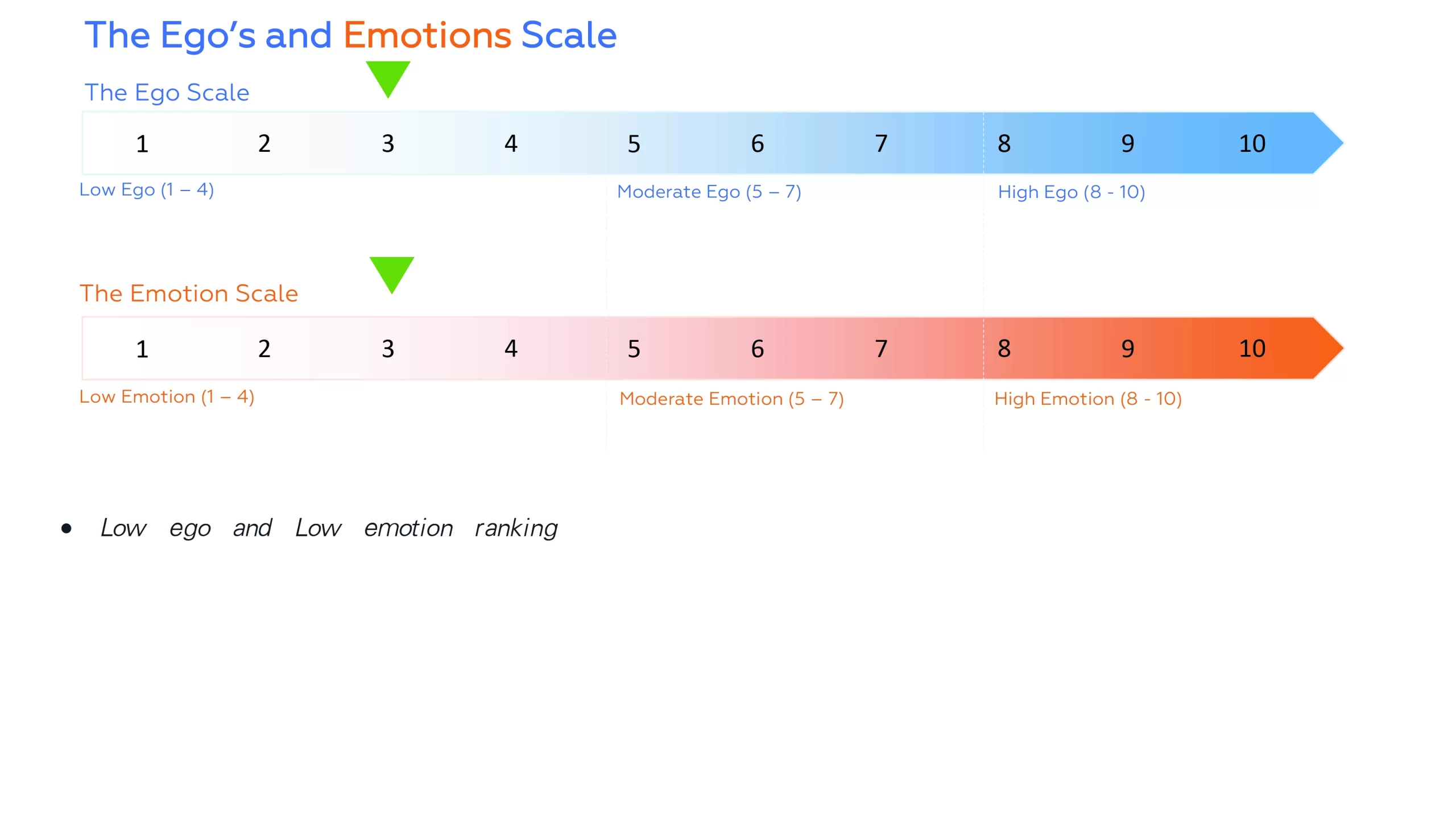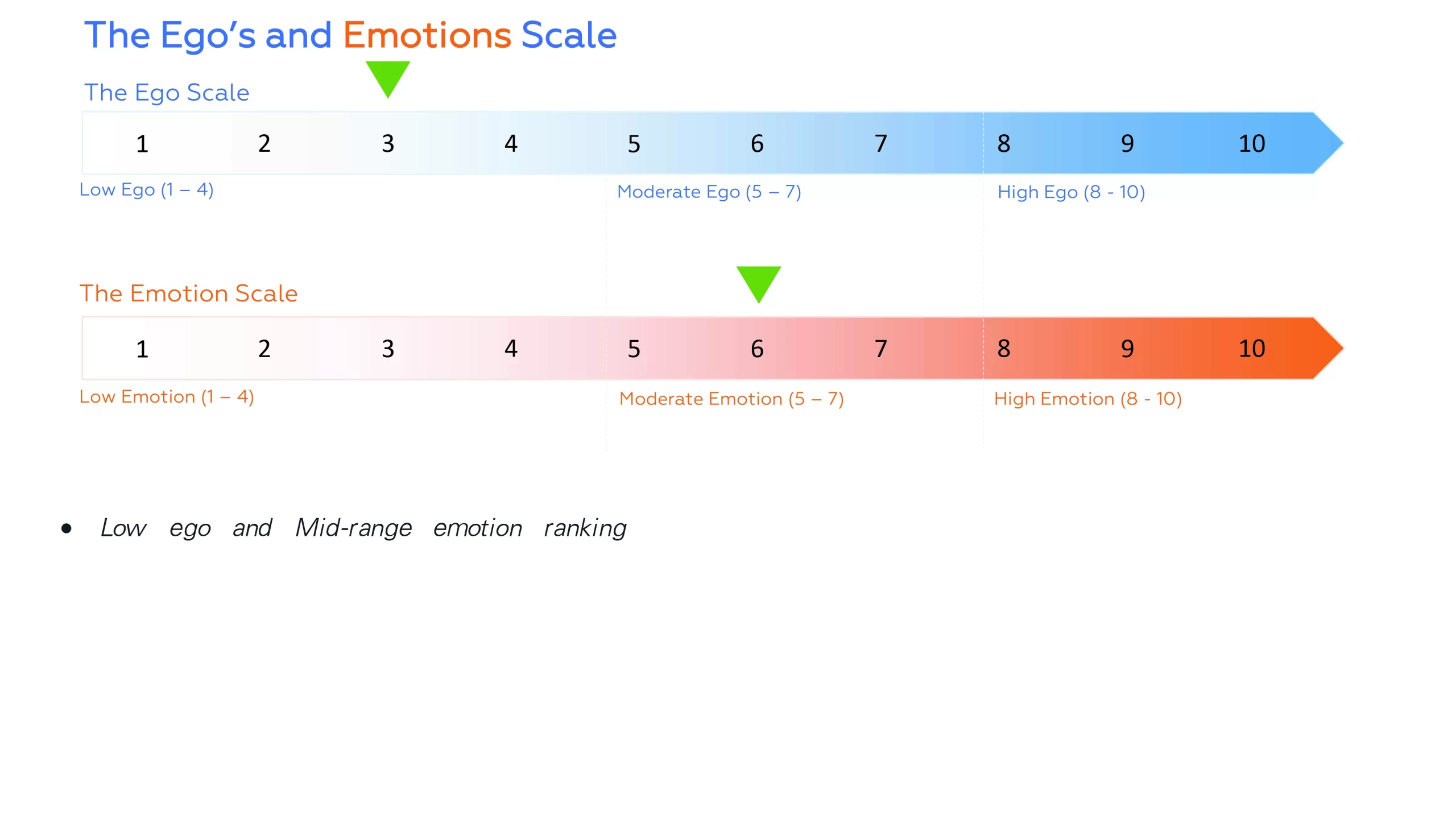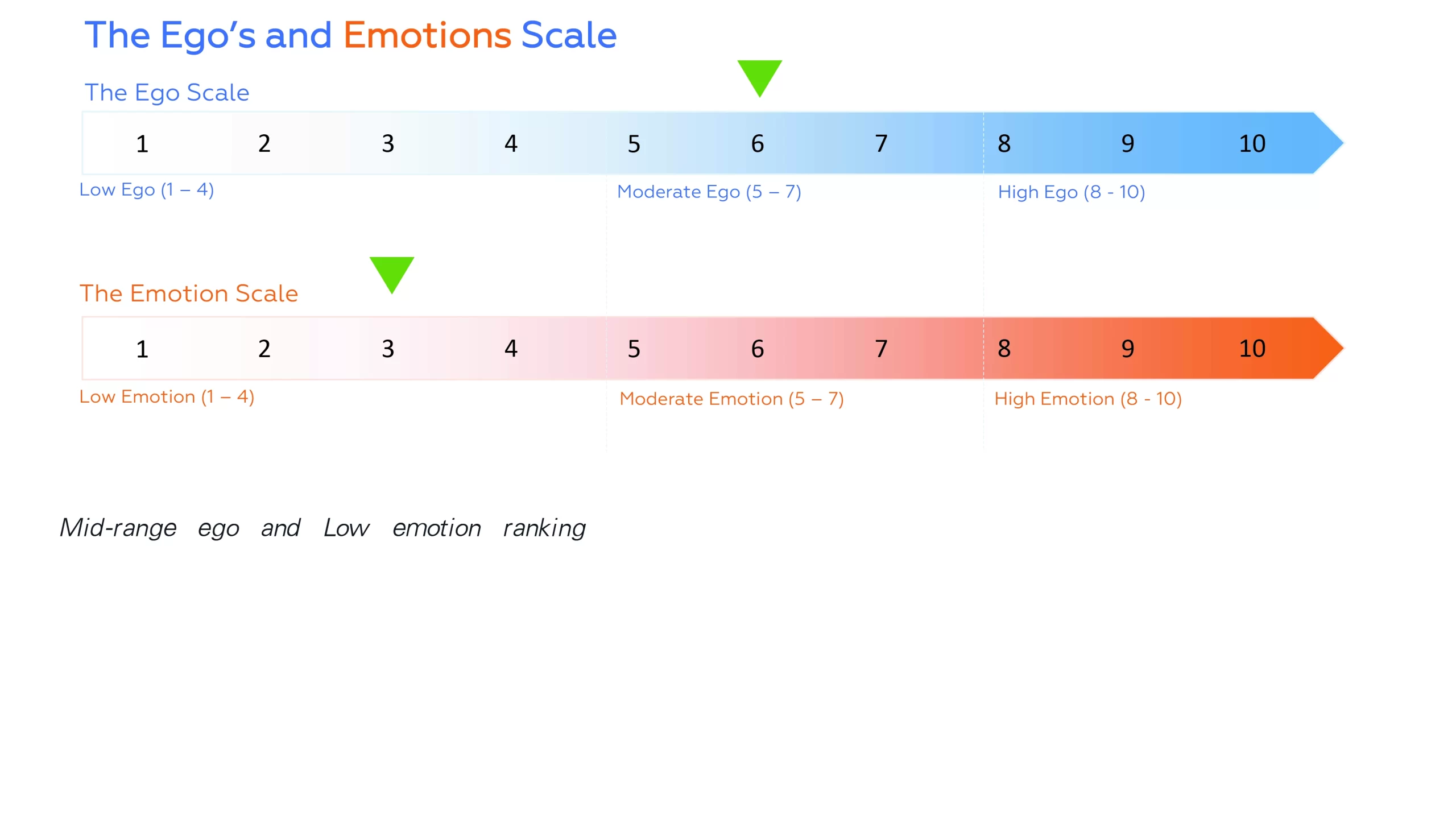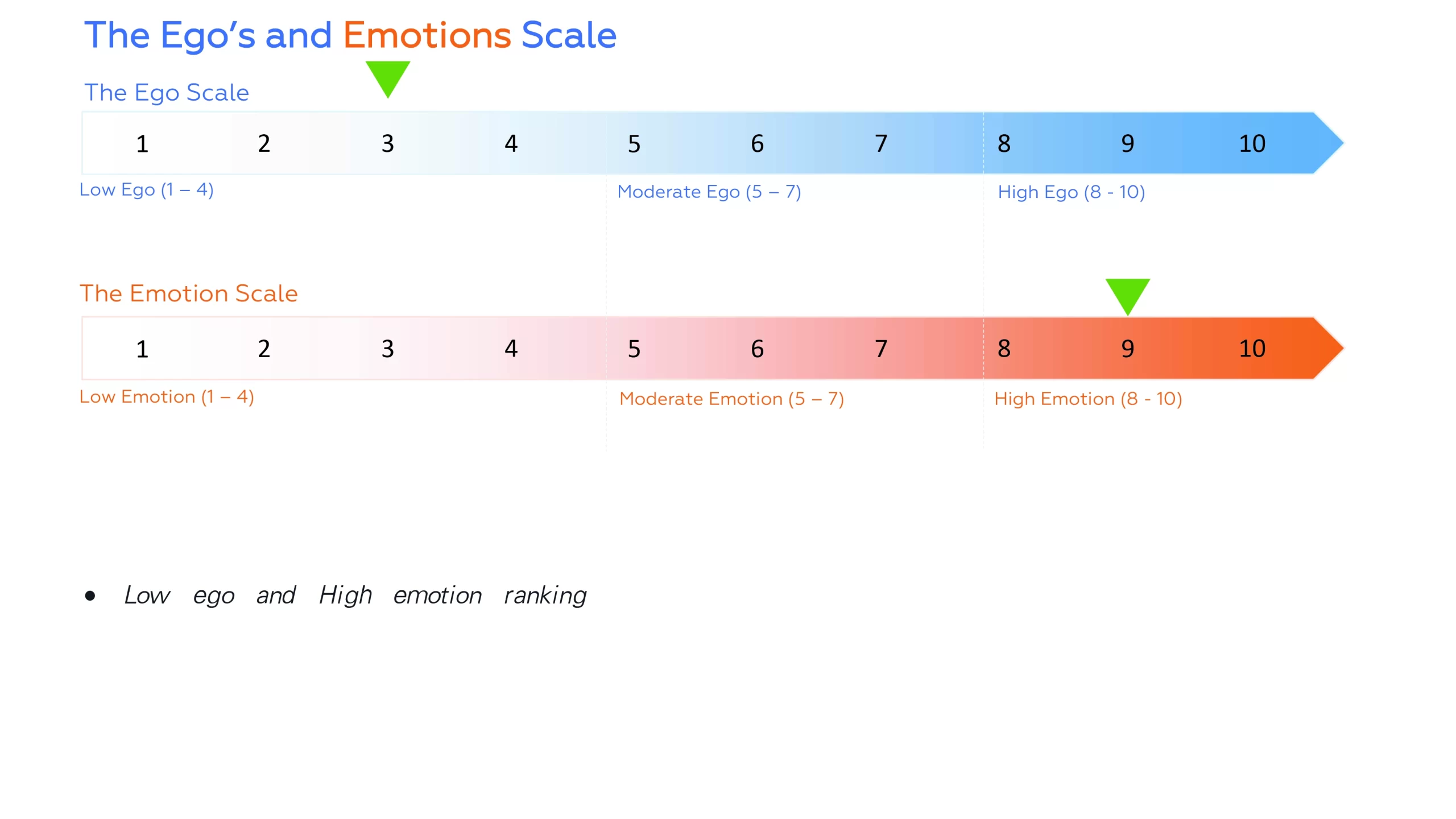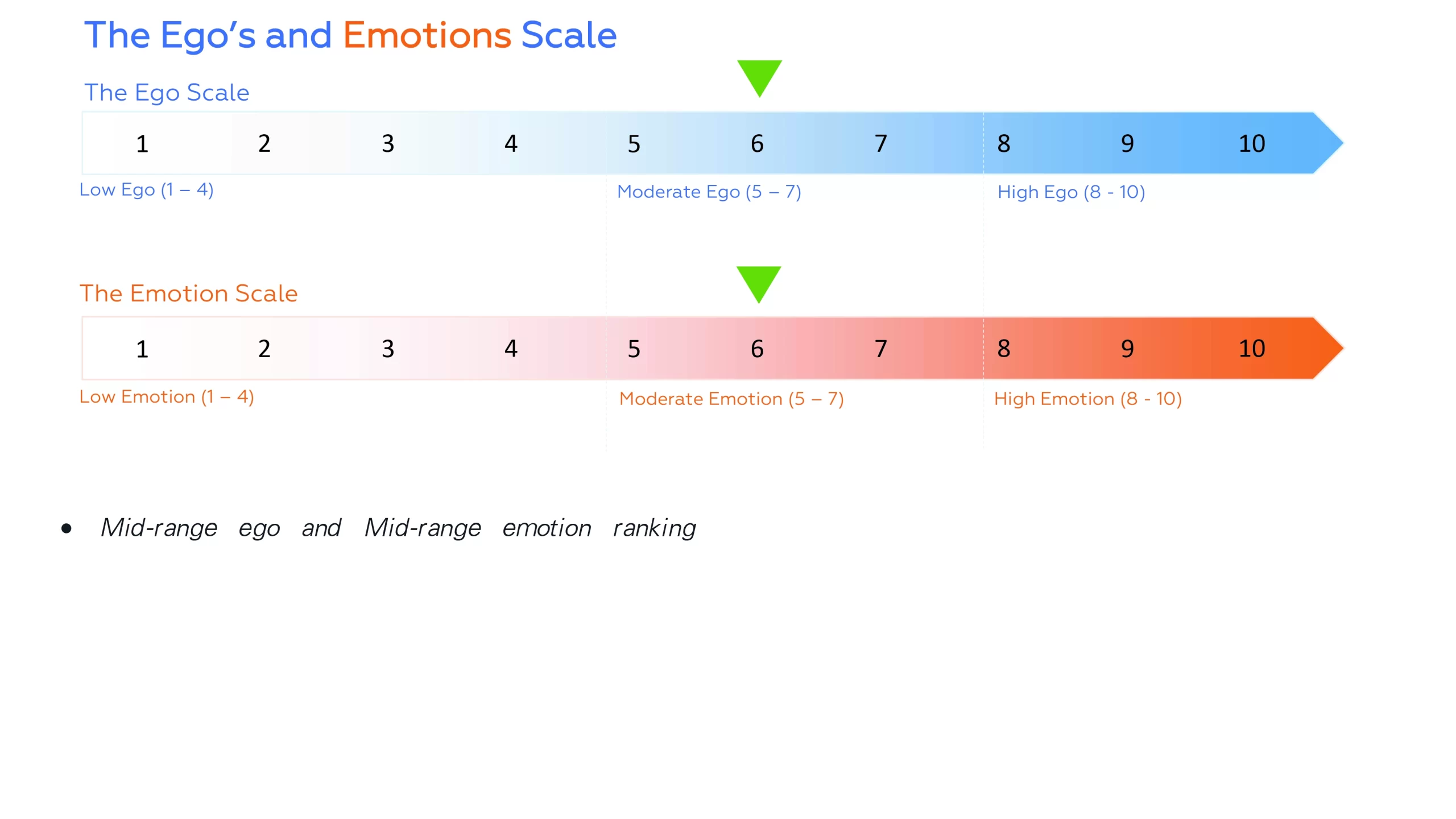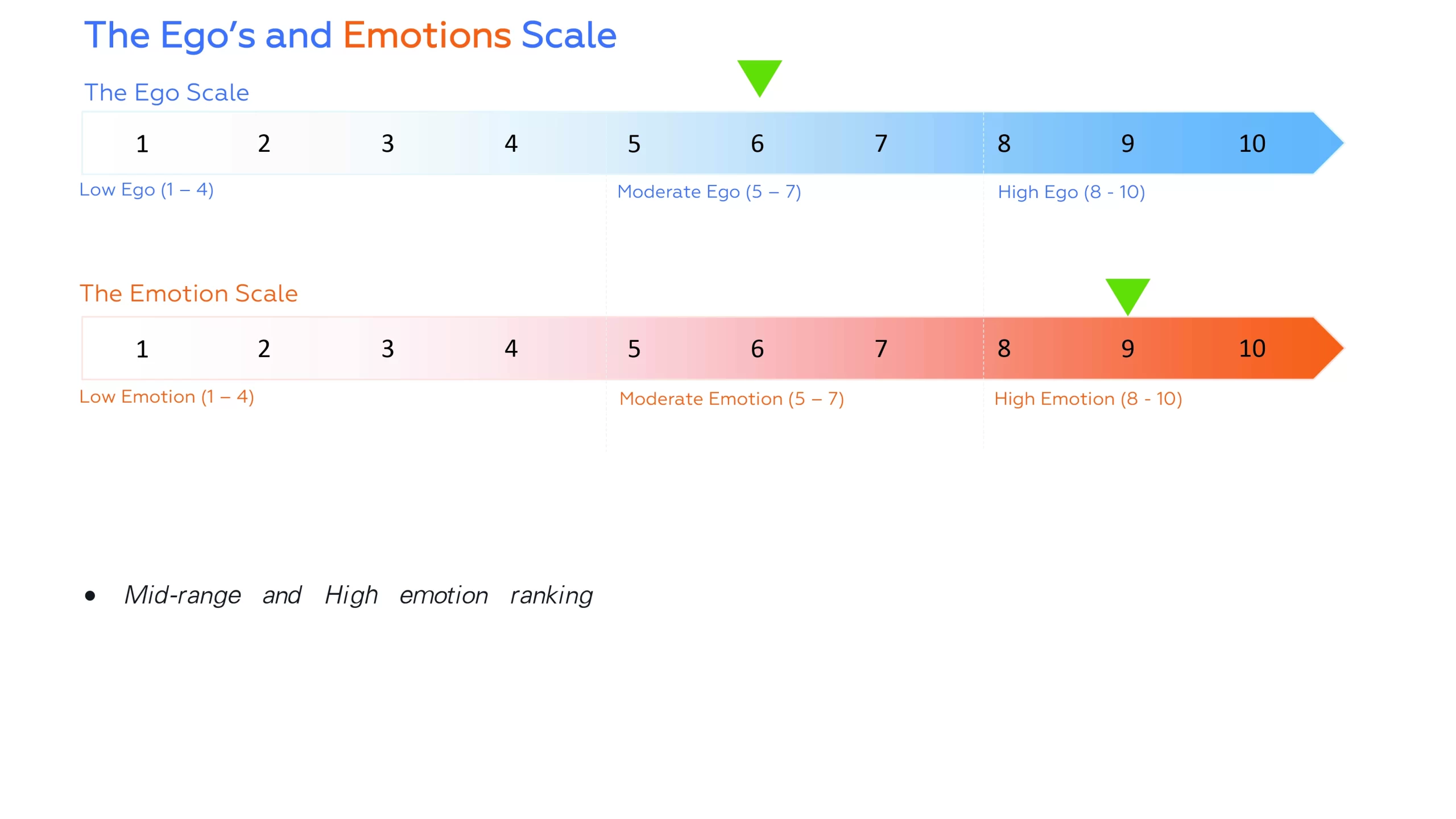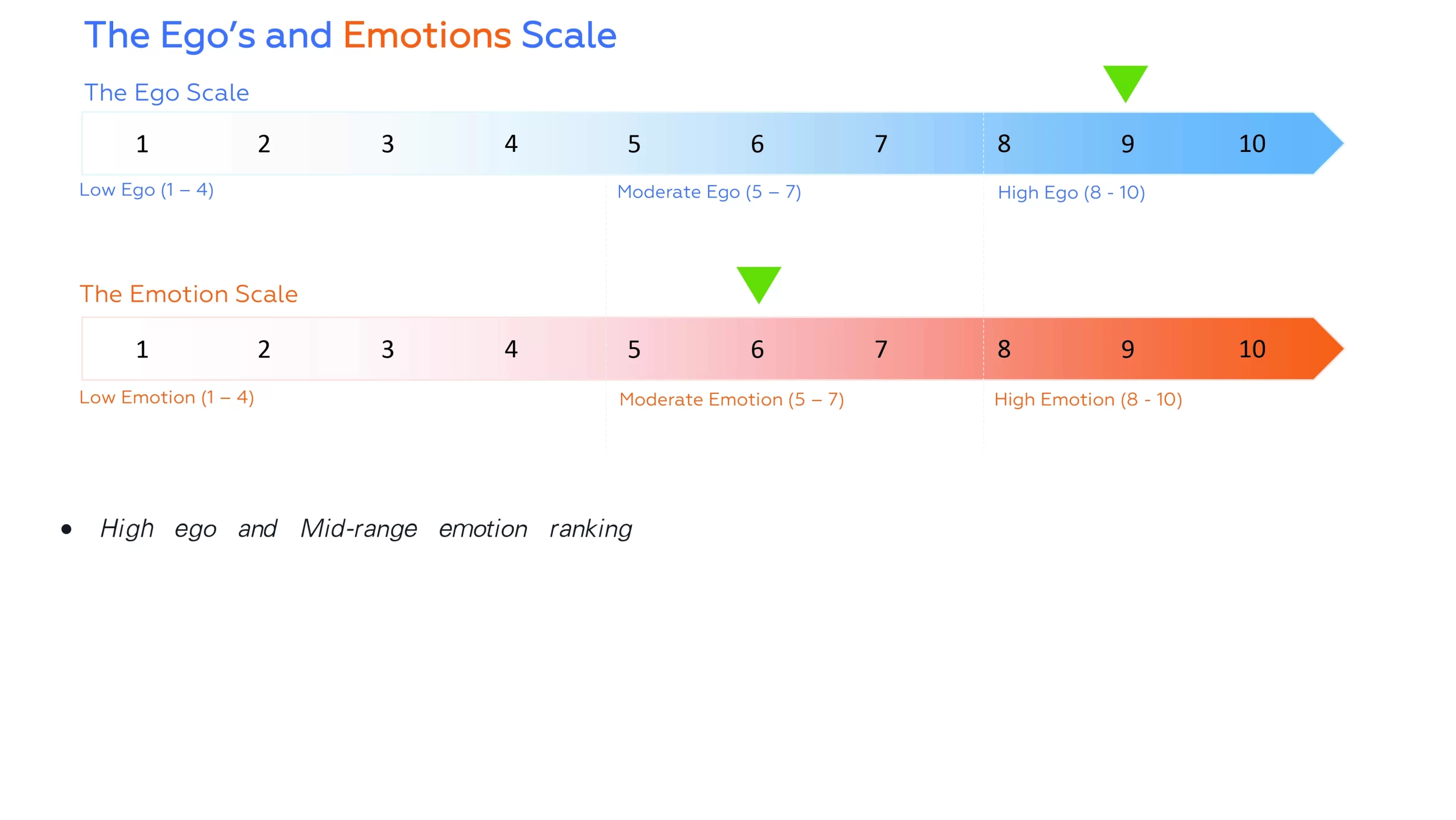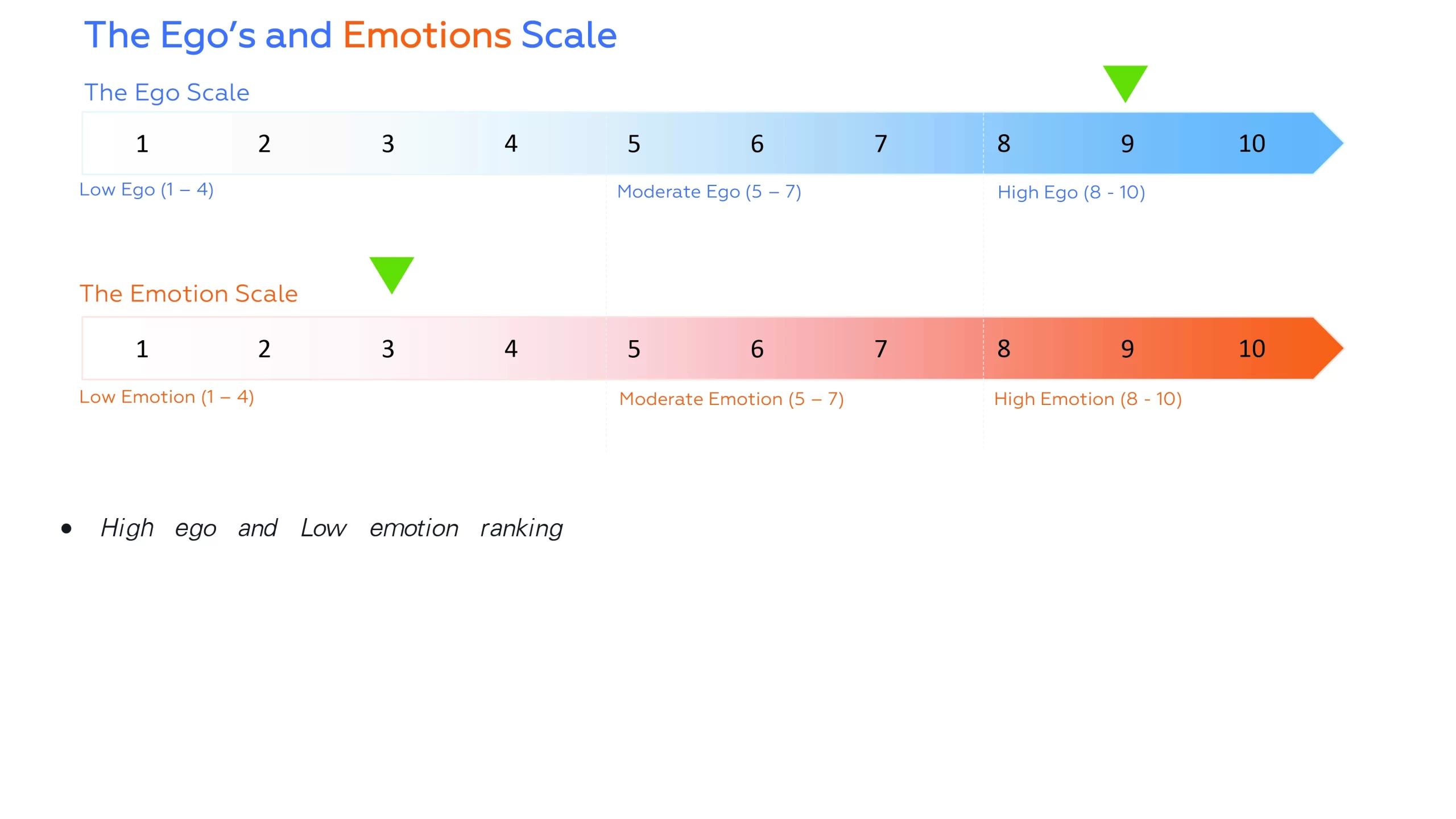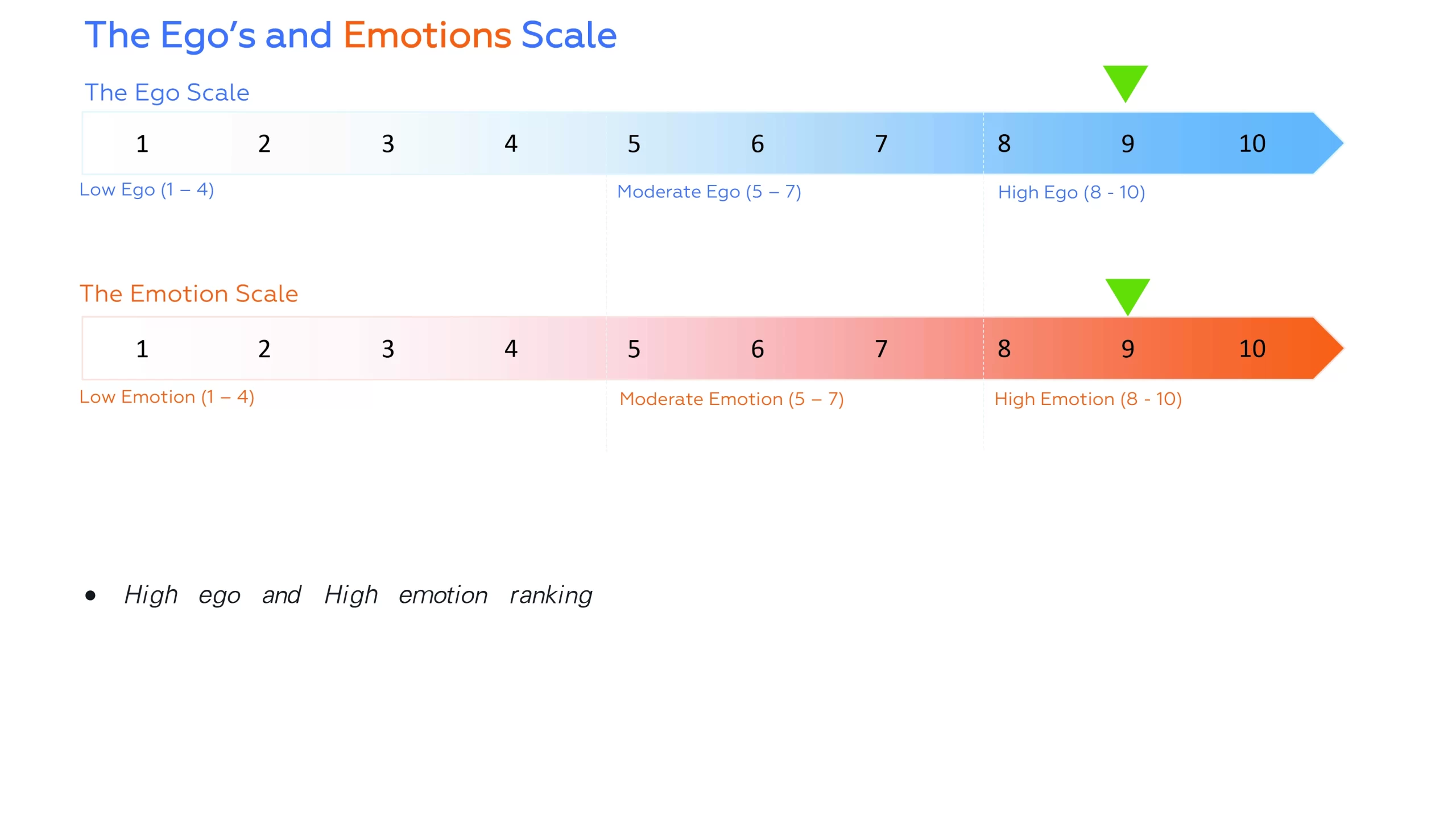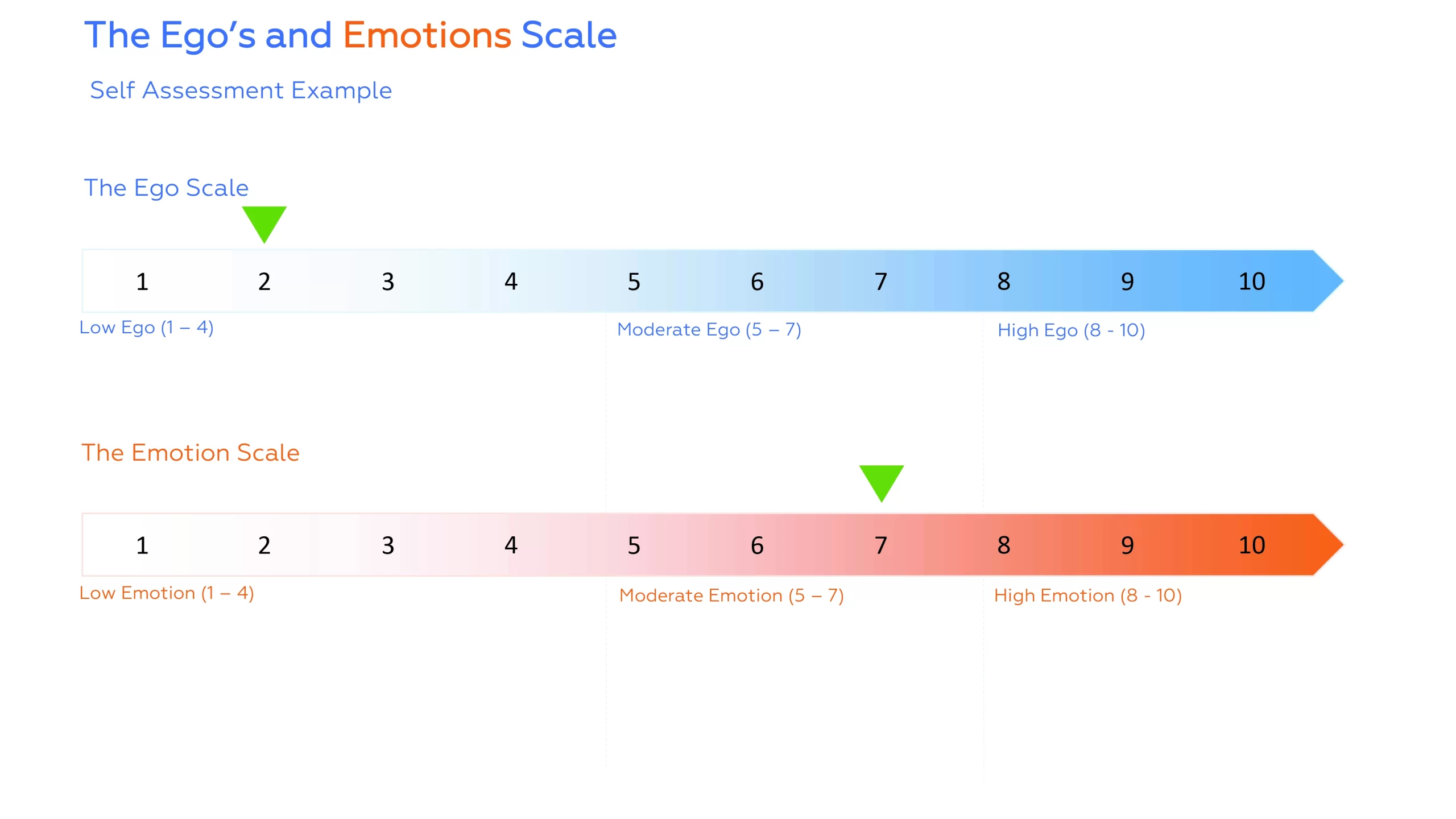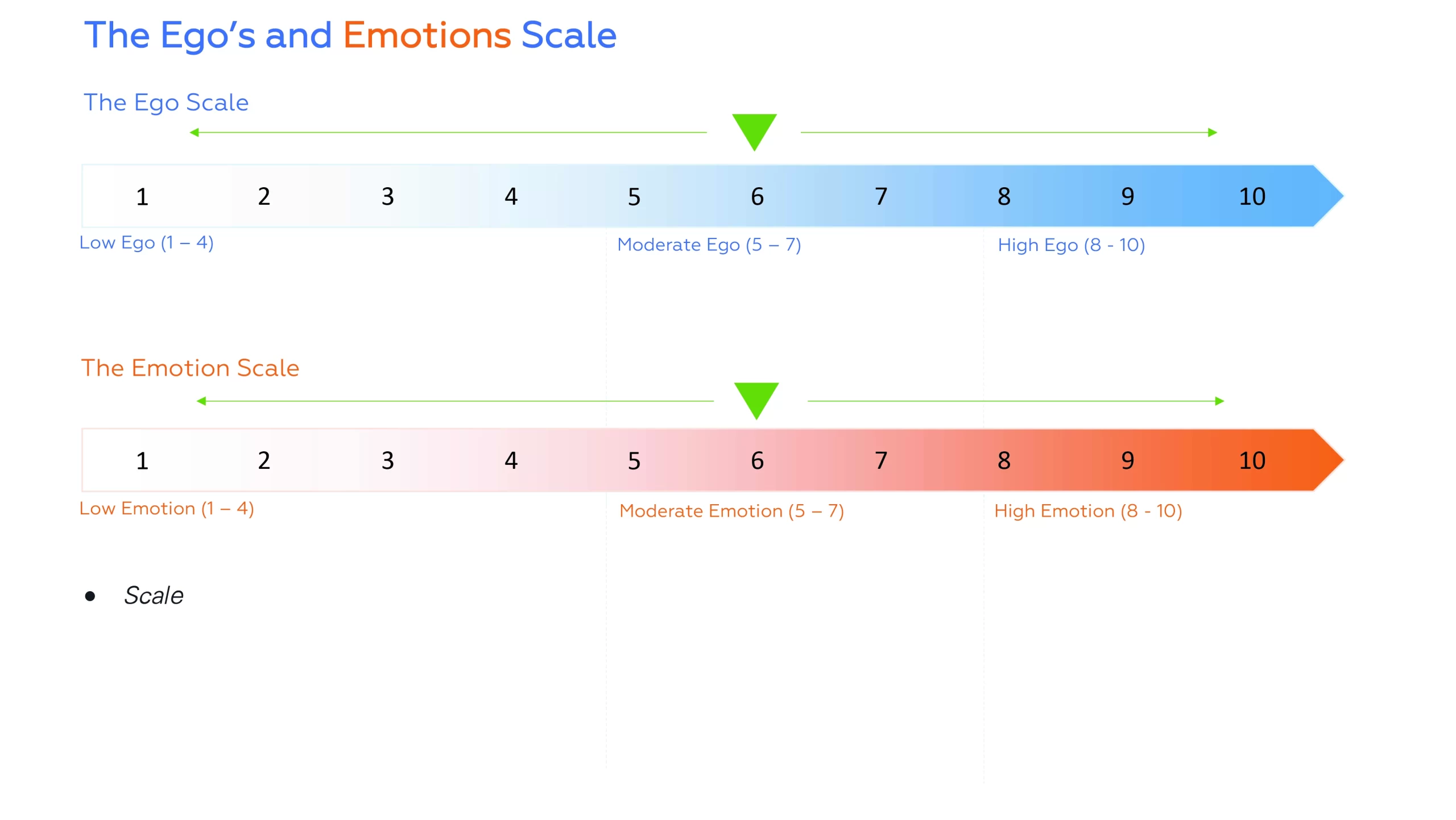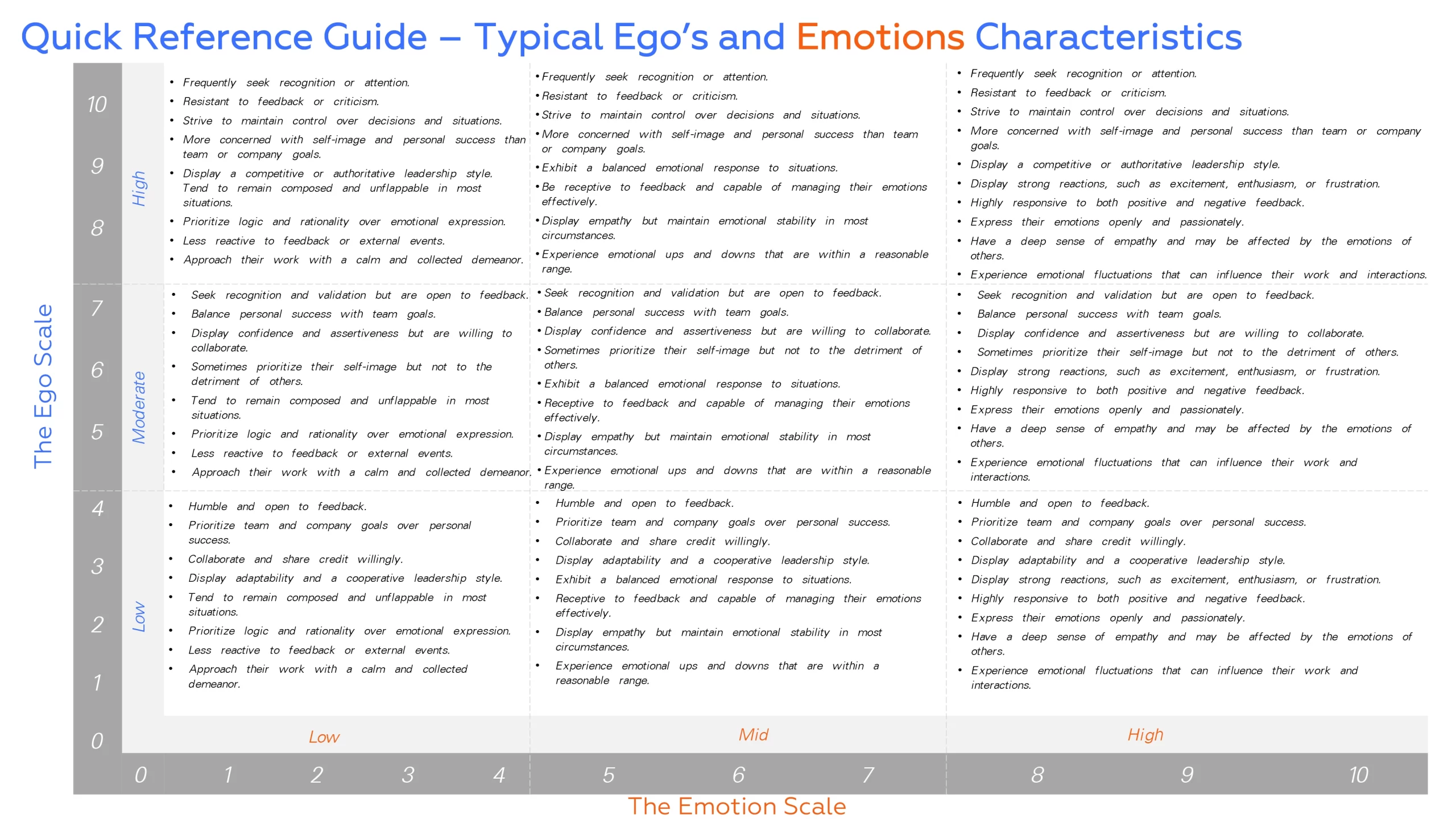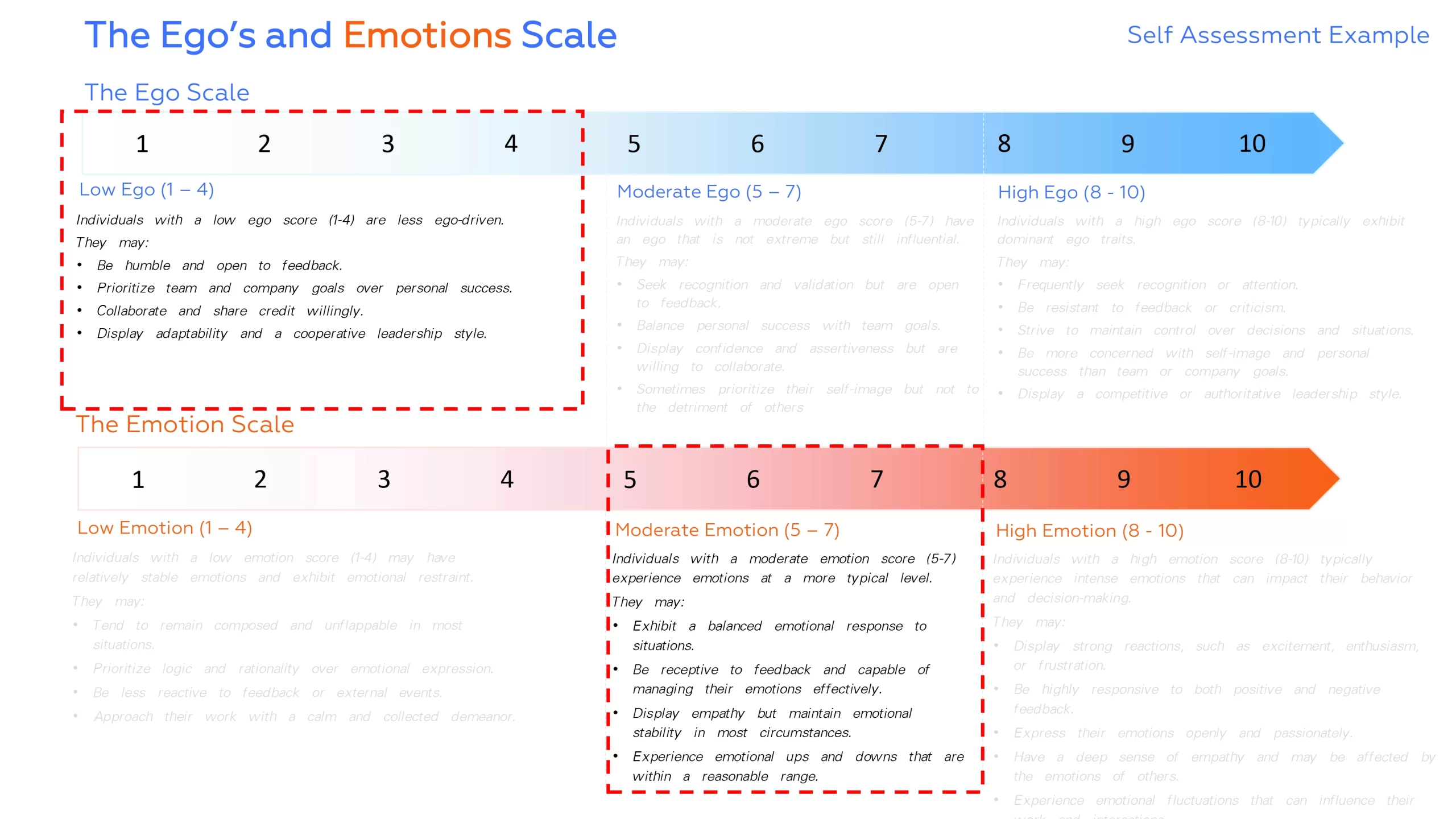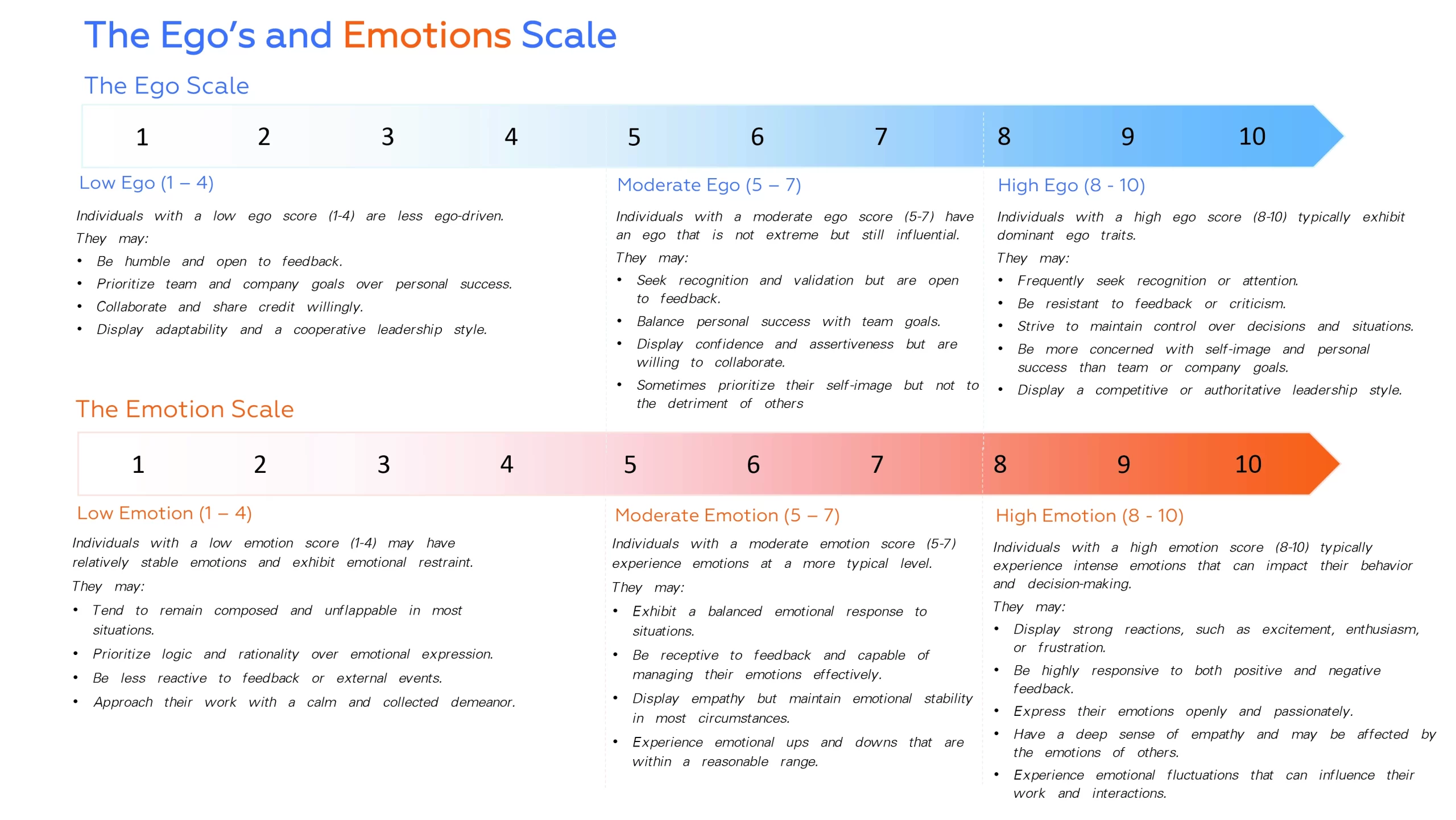How Do I Rank
on the Egos &
Emotions
Scale?
“Know Thyself”: Cultivating Emotional Self-Awareness
Emotional Intelligence is the cornerstone of navigating the intricate dynamics of human interaction. It revolves around our ability to recognize, understand, manage, and effectively use our own emotions and those of others. Understanding the interplay between ego and emotions is paramount in both personal and professional realms, where self-awareness serves as a linchpin for success.
Embark on a journey of self-discovery with our Ego & Emotion Self-Assessment test. This assessment comprises 10 straightforward questions in each area, designed to provide insight into your current standing on the Ego & Emotions Scale. By gauging your emotional self-awareness, you’ll gain valuable insights into your strengths and areas for growth, empowering you to navigate interpersonal dynamics with clarity and finesse.
How Do I Rank on the Ego Scale?
Review the 10 (ten) questions for the Ego scale and select either A, B or C as your answer to see where you score on the Ego Scale.
Rank My Ego
Score Summary:
High Emotion: High ego individuals can be highly capable and effective in their roles, but understanding their ego traits can help in managing and collaborating with them more effectively.
Moderate Emotion: Moderate ego individuals typically strike a balance between self-confidence and humility. They are open to feedback, willing to collaborate, and often seen as approachable and empathetic in professional settings.
Low Emotion: Low ego individuals are characterized by their humility, openness, and willingness to work harmoniously with others. They tend to prioritize team success over personal recognition and are often seen as approachable and supportive in professional settings.
What is my Ego Ranking?
1. How do you handle criticism or feedback from others?
2. Can you describe a situation where you had to make a tough decision?
3. What are your key strengths as a leader or team member?
4. How do you respond to colleagues or team members who disagree with your ideas or decisions?
5. Can you share an example of a recent achievement or success at work?
6. How do you handle situations where you don't have all the answers or face uncertainty?
7. Do you actively seek feedback from your colleagues and subordinates?
8. How would you describe your leadership style?
9. In what ways do you motivate and inspire your team or colleagues?
10. Can you share a time when you faced criticism or negative feedback and how you handled it?
How Do I Rank on the Emotion Scale?
Review the 10 (ten) questions for the Emotion scale and select either A, B or C as your answer to see where you score on the Emotion Scale.
Rank My Emotion
Score Summary:
High Emotion: High emotion individuals might vividly describe moments of immense joy, pride, or emotional celebration in their professional life.
Moderate Emotion: Moderate emotion individuals tend to balance their emotional sensitivity with a sense of self-awareness and humility. They are open to emotions and empathetic but also recognize the importance of practical solutions and collaboration in professional settings.
Low emotion: Low emotion individuals typically favor a pragmatic and composed approach to their work, valuing rationality and practical solutions over strong emotional reactions. They may focus on creating a stable and efficient work environment while keeping their own emotions in check.
What is my Emotion Ranking?
1. How do you typically respond to challenging or stressful situations at work?
2. What strategies do you use to manage and cope with strong emotions in the workplace?
3. Can you share an example of a situation where you were emotionally moved at work?
4. How do you handle conflicts or disagreements with colleagues or team members?
5. What motivates you in your professional life, and how do you stay emotionally committed to your goals?
6. Can you describe a time when you had to provide emotional support to a colleague or team member?
7. How do you manage the emotional well-being of your team or colleagues?
8. What are the emotional qualities you value most in your professional relationships?
9. How do you handle work-related setbacks or disappointments?
10. Can you share an example of a time when you celebrated a professional success with intense joy or emotional expression?
Where do I fit on the Egos and Emotions scale
Instructions: Take your highest score from both the Egos Scale Questions and Emotions Scale Questions and map it to appropriate numbers on the scale to find your ranking and characteristics.
If your summary score adds to an equal number such as “A = 5, B=5” or “A=5, C=5” or “B=5, C=5”, please review your answers to ensure you have a highest score response within category, A, B or C.
